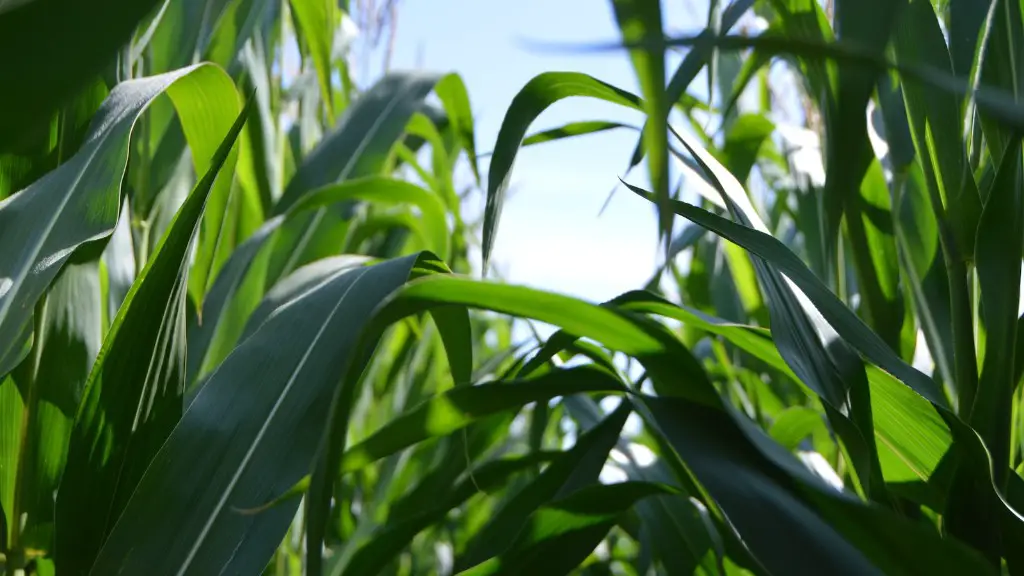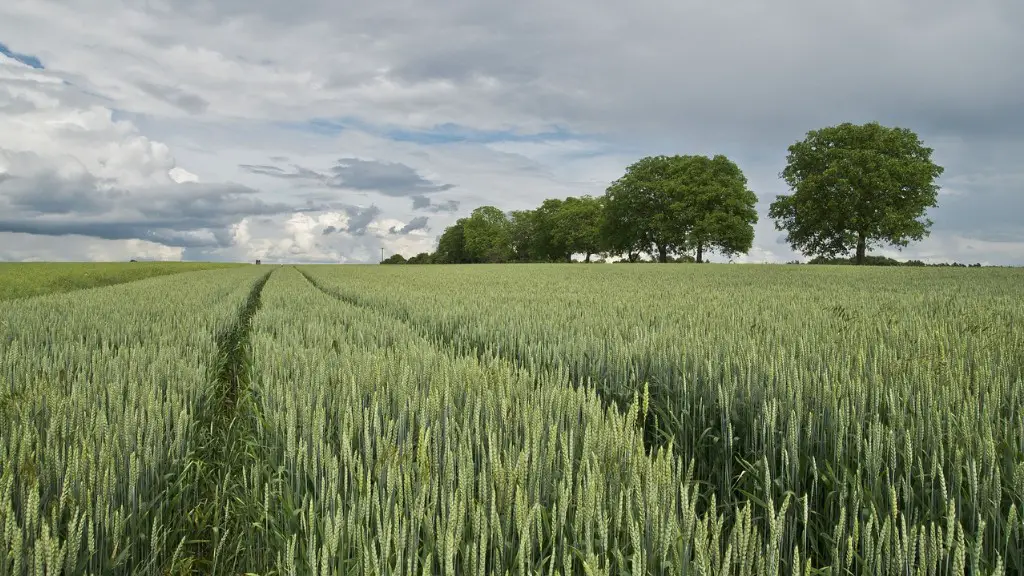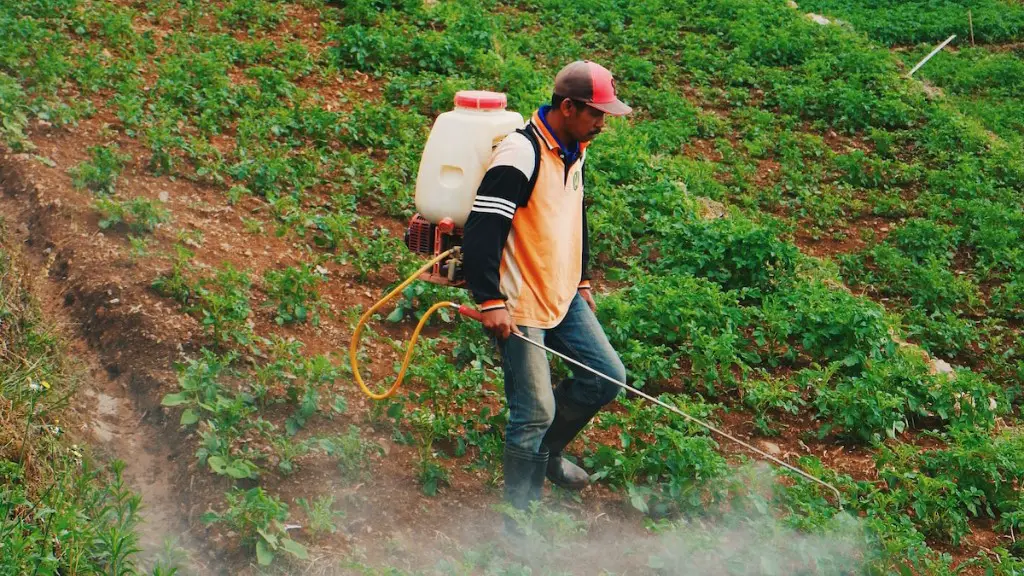Agriculture has been a part of human life for thousands of years and is an activity that is arguably our species’ most successful and sustainable mode of survival. But when exactly did it first emerge? Recent academic research suggests that agriculture may have arisen as early as 12,000 years ago, but the exact date remains unknown and is the subject of considerable debate among scholars.
The origins of agriculture can be traced back to the Neolithic Revolution – a period in human history marked by the introduction of various stone tools and the transition from hunting and gathering to farming. It is believed to have occurred first in the Middle East or North Africa, and these regions are considered to be the birthplace of agriculture.
At around 12,000 years ago, many hunter-gatherer societies began domesticating plants and animals, which helped them to establish more permanent settlements. This practice gradually spread to other parts of the world, and by 5,000 years ago, most of the planet was practicing some form of rudimentary agriculture.
Agriculture was extremely important to the development of human civilizations, as it allowed us to create surplus food that could be stored, traded and used to support larger populations. This allowed humans to settle in one location, instead of just roaming around in search of food, and eventually led to social and political organization.
Despite being around for thousands of years, the exact date of when agriculture first emerged remains uncertain. This is mainly due to the fact that it is difficult to accurately date the remains of early farming communities. However, scholars agree that agriculture was likely first practiced in the Middle East or North Africa and began to spread from there.
The practice of agriculture has allowed humanity to flourish, and is at the very foundation of our societies. Despite its long and complicated history, there is still much to be learned about when it first emerged and how it has impacted our lives.
Agriculture has come a long way since its beginnings and has helped propel human civilization forward. It is an integral part of our lives and continues to be a source of sustenance and livelihood around the world.
Agricultural Technology
Agricultural technology has changed drastically over the past 12,000 years, evolving from simple stone tools to high-tech machinery. The advent of new technology has allowed cultures to increase their yields and gain new insights into how their crops grow. Changes in agricultural technology have allowed farmers to produce more efficient and sustainable crops, which has had a profound impact on food security.
The use of mechanized equipment to harvest and process crops has revolutionized the farming industry, making it easier and more cost-effective to produce food. In the past, harvesting was done primarily with hand tools, but now there are machines that can do the work much faster. Modern irrigation systems have allowed farmers to grow crops with much less water, leading to higher yields and more efficient use of resources.
Modern farming practices utilize modern technology, such as GPS-guided tractors, drones, and robots, to reduce labor costs and increase yields. Computerized irrigation systems help ensure that crops are getting the right amount of water and nutrition at all times, while sensors can detect crop disease and infestation. Technologies like hydroponics and aquaponics have allowed farmers to increase their yields by growing food in a controlled environment.
Genetic engineering has been used to modify the genetic makeup of crops, allowing new plant varieties to be grown with improved traits. This technology has allowed crops to be bred for a variety of different characteristics, such as cold hardiness, drought-tolerance, and disease-resistance. This has vastly improved the yields of many crops, as well as their taste and nutritional value.
Agricultural technology has been essential to the growth and development of human civilization, and its use continues to be integral to our survival today. New technologies are being developed all the time, and these advances will no doubt continue to shape the future of agriculture.
Risks and Benefits of Agriculture
The introduction of agriculture has had both positive and negative effects on human society. One of the most significant benefits has been the increased availability of food and resources, which has helped to support larger populations. Having access to a reliable and abundant food source has allowed people to focus on other activities, such as developing new technologies and cultures.
However, agriculture has also caused serious environmental concerns. Farming is a major driver of land degradation, as it can lead to deforestation, soil erosion, and water pollution. The overuse of fertilizers and pesticides can also cause major problems, such as air pollution, poison contamination of soil and water, and the creation of “dead zones” in waterways.
Agriculture has also caused rapid displacement of Indigenous peoples, resulting in the fracturing of traditional societies and cultures. It has also led to significant economic inequality, as industrial-scale farming and the use of advanced technology can give some farmers a significant advantage over others.
Overall, the effects of agriculture are complex and are both positive and negative. It is essential that we recognize the associated risks, while also acknowledging the benefits that it has brought to human civilization. Our current agricultural methods must be modified in order to alleviate the negative impacts and promote sustainable practices.
One of the most important steps we can take to ensure the future of agriculture is to invest in research and development. We need to move away from destructive practices and toward more efficient, environmentally friendly methods. This means investing in innovative technology, infrastructure, and education that will help us to improve our agricultural practices and create a sustainable food system.
The Impact of Agriculture on Society
Agriculture has had a huge impact on human societies throughout history, significantly influencing the development of civilizations. It is essential to the growth of populations and has allowed for the emergence of cities, the growth of economies, and the development of technology.
Agriculture has allowed humans to increase their food production, as well as to create a surplus of food that can be traded. This has dramatically changed how societies function, as now food production can support a larger population. This has enabled the growth of cities, which have become the centers of culture, religion, and education.
Agriculture has also played an important role in economic development. The production of food and other agricultural goods has allowed societies to trade, fueling economic growth and helping to create open markets. This has led to the rise of trade empires, which were essential to the development of complex societies.
In addition, the introduction of agriculture has allowed humans to learn more about the environment and use of natural resources. For example, by understanding the science of soil, farmers have learned to alter their environment and increase yields. This knowledge has been essential to the development of new technologies, such as in the industrial and tech sectors.
Agriculture has been essential to the development of human civilizations and continues to have a significant impact on societies today. We must continue to invest in new agricultural technologies and practices to ensure that we can feed the growing population in a sustainable manner.
Agriculture and Climate Change
Agriculture is one of the most vulnerable sectors in a changing climate, and the impacts of climate change on agriculture are becoming increasingly evident. Higher temperatures and more extreme weather patterns can lead to reduced crop yields, while the effects of climate change on soil and water resources can impede agricultural production.
The impacts of climate change on agriculture are already evident, and solutions to mitigate and adapt to these changes must be found. Practices such as improving water efficiency, adopting sustainable farming methods, utilizing renewable energy sources and investing in resilient agricultural technologies are just some of the steps needed to make sure that farming is done in a sustainable and climate-smart way.
Climate change-related effects such as heatwaves, droughts, floods and pest infestations are likely to become more frequent and extreme. Farmers are going to have to find new ways to adapt their practices in order to cope with these changes, such as using climate-resistant seed varieties, adapting to changing weather patterns, and implementing water conservation measures.
Agriculture and climate change are inextricably linked. As the climate continues to change, so too will global agriculture, and it is essential that we develop strategies to mitigate and adapt to these changes. Doing so will be essential to ensuring a secure and sustainable food system in the future.





